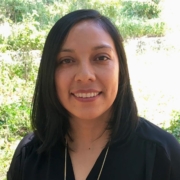“Return of the Maya: Conceptualizing Diaspora through the Experiences of Return”
Since 2019, I have collaborated with DESGUA (Desarollo Sostenible para Guatemala) an organization founded and led by Mayas impacted by migration. Officially, DESGUA defines itself as a neighborhood association that establishes routes to economic sustainability and educational opportunity to combat the root causes of migration. They primarily work with four migration related populations: 1) returned migrants/deportees, 2) women left behind when male relatives migrate, 3) youth at risk of migration, and 4) the children of migrants who return wanting to understand why their families migrated. However, in practice DESGUA functions as an expansive international and deeply local network of critical Maya organizers, elders, cultural producers, entrepreneurs, and artists who seek to challenge the dehumanization that occurs because of state neglect and displacement.
The CSW|Streisand Research Grant allows me to travel to Guatemala and conduct participant observation fieldwork and in-depth oral histories with their founders and leaders about their life experiences as well as their engagement with DESGUA. I am especially interested in the stories of the Maya women who have taken on the leadership of DESGUA since the COVID-19 pandemic began. While I will interview founders of the organization, I want to understand the life experiences of the women who sustain the space. In some ways their labor looks like prescribed feminized labor, they work as administrators and head cooks, for instance. However, as we know, this gendered labor takes on distinct significance when it becomes understood as fundamental to social movements or communal sovereignty. One of my primary concerns is trying to understand how Maya women navigate the need for autonomy from the nuclear familial structure which is a settler colonial instrument. Many of the women I have spoken to discuss the process of coming to their own sense of self after engaging with DESGUA in ways that challenge standard norms in their families around gender. While these are individual stories, within Indigenous communities that are tightly knit, these women also become models for new modes of understanding the labor and role of women. This process of autonomy from their nuclear family also creates the space for contributing their time and labor to a communal space, which seems to me to be sovereignty in action.
People
Floridalma Boj Lopez
Floridalma Boj Lopez is an Assistant Professor in the Department of Chicana/o and Central American Studies. Dr. Boj Lopez’s work uses a transborder approach to analyze the experiences of Maya migrants as they cross settler colonial borders and encounter distinct racial logics in the United States. Her research examines cultural production among the Guatemalan Maya diaspora with a particular emphasis on intergenerational relationships, gender, and the production of Indigenous migrant community in Los Angeles, CA.
Photo caption: DESGUA project, Café Red Kat, photo taken by Floridalma Boj Lopez.



